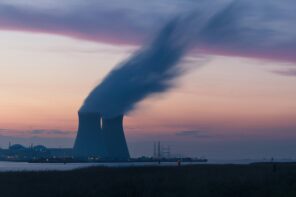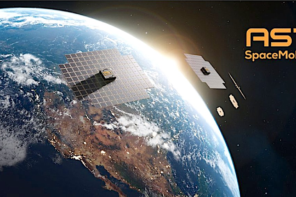“Is anyone else alarmed that billionaires are having their own private space race while record-breaking heat waves are sparking a ‘fire-breathing dragon of clouds’ and cooking sea creatures to death in their shells?” Robert Reich, the former US Labor Secretary, tweeted just days before British billionaire Richard Branson made his first flight into space aboard his Virgin Galactic rocket. About a week later on July 20, 2021, Amazon founder Jeff Bezos ventured into space aboard his personal spaceship built by the private space flight company he founded, Blue Origin. Tesla’s Elon Musk is the third entrepreneurial member of the “billionaire rocketeers” with his company SpaceX. He joins Branson and Bezos in the quest to pioneer the private space industry, which endeavors to carry humans into space––and possibly to the moon and Mars.
Although the advent of space tourism may sound excitingly innovative for the scientific community, a race among billionaires should be a race to save the planet, not to leave it. It is clear that climate change has caused irreversible damage to the Earth and its ecosystems, significantly threatening the future of the planet. This damage will only be exacerbated in the oncoming decades. Prominent individuals like Prince William have argued that those who are privileged enough to be educated and affluent have a crucial responsibility in uncovering solutions to repair Earth rather than pursuing the next habitable planet.
Concerningly, Bezos described his inaugural space flight in July as part of building a path to space “so that our kids and their kids can build a future.” It is unsettling to realize that billionaires who have the resources to battle climate change might instead abandon ship with private escape pods. Popular media is similarly concerned with this, as seen in Netflix’s Don’t Look Up, a film that presents a satirical commentary on how climate change is typically discussed and the real anxiety over being deserted.
It is unsettling to realize that billionaires who have the resources to battle climate change might instead abandon ship with private escape pods.
Furthermore, the burgeoning private space industry comes at vast environmental costs. Rockets require exorbitant amounts of fuel that emit chemicals into the atmosphere, including carbon dioxide, water, and chlorine. One rocket launch alone released 200-300 tonnes of carbon dioxide into the atmosphere—and there were 114 attempted orbital launches in 2020, according to NASA. Unlike airplanes, emissions from rockets are emitted into the upper atmosphere where particles remain for 2-3 years. Even seemingly harmless substances like water can contribute to global warming. According to senior policy advisor at the New Zealand Space Agency Jessica Dallas, the most concerning environmental impact of space visits is the depletion of stratospheric ozone. A lack of international laws governing rocket emissions and fuel use further damage the environment.
Not only are billionaires like Bezos harming the environment with private space companies, but their primary companies are also aggravating the climate crisis. In 2019, Amazon unveiled its Climate Pledge after employees started pressuring the e-commerce giant to reduce its carbon footprint. The Pledge committed the company to be carbon neutral by 2040 and running entirely on clean energy by 2025. However, since 2018, Amazon’s carbon footprint has consistently risen. In 2021, the company launched a $2 billion venture capital fund to back companies building sustainable technologies. Although these initiatives are under the guise of progress toward sustainability, they serve more as virtue signals. The same year Amazon announced their venture capital fund, the company produced 60.64 million metric tons of carbon dioxide and earned $469.8 billion in revenue. Meanwhile, millions of Amazon workers suffered immensely from layoffs, neglectful working conditions, and paycheck shortchanging. Furthermore, the fund is only 1.2% of Jeff Bezos’ net worth of $164.8 billion.
Investing that money into sustainable development initiatives on Earth is vastly more imperative than taking a joy ride into space.
It is critical that entrepreneurs use their resources to invest in renewable resources and innovations that will not only curb climate change but also seek to alleviate impoverishment. According to the International Institute for Sustainable Development, impoverishment is one of the main underlying factors of disaster risk. Furthermore, low-income countries experience a disproportionate share of the damage caused by climate change, including rising sea levels, drought, and extreme weather events. The space tourism industry is expected to reach $2.58 billion by 2031. Investing that money into sustainable development initiatives on Earth is vastly more imperative than taking a joy ride into space.
The fascination with space and yearning to understand the solar system has been a quintessential aspiration for billionaires, scientists, and ordinary people alike. However, space exploration for the purpose of space tourism cannot take precedence over climate change action. This is especially by people like Musk, Branson, and Bezos, who have the power to mobilize their seemingly-endless resources to alleviate the climate crisis.








